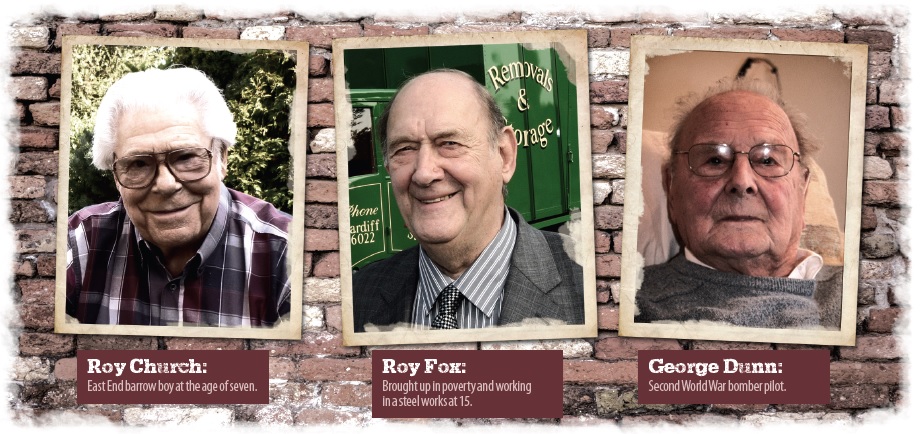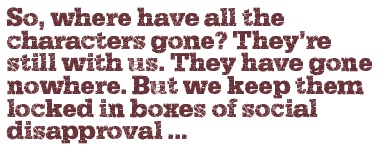Many say that the moving industry doesn’t have the same old characters it used to have in days gone by. Steve Jordan speculates as to why that might be.

Have you noticed that all the characters from our industry, are old? You don’t often hear the term ‘young characters’. I wonder why? Surely there is just as much chance of someone being interesting, amusing, eccentric perhaps in their youth as in their later years? Maybe not.
Over the last 20 years or so I have interviewed many of the industry’s great and good. Not exclusively of course, but generally, there has been a theme: times were tough in the old days. Take a look at the story about George Taylor in this issue for example. With a childhood like that is there any great surprise that the adult turned out to be a bit different.
You could say the same about many of the older generation. People who grew up during the War, lived through the depression, knew what it was like to be hungry, understood the value of things, and had a fundamental feel for the human condition. They were not insulated from reality. If they put a step out of line they had to face the wrath of their parents – or any adult who was on the scene. They quickly learned right from wrong and how to make one look like the other. Streetwise you’d probably call it today.
They didn’t suffer fools. They had no need to. They said what the thought and, if you didn’t like it … tough. There are not many like them around now.
The characters have gone because we live in a more comfortable world in which the term ‘character building’ is applied to running a marathon, or getting over a broken love affair. Not quite the same I would suggest as being bombed out of your home and living on the streets. Maybe we don’t have these characters any more. Maybe we should be grateful we don’t.
 But those characters are still there. Old people don’t have a unique ability to be quirky, they just lived through the conditions that made them that way. If those conditions returned, we’d be the same. The boys who run riot on the street, fuelled on testosterone and adrenalin, are only the same chaps who stood in the trenches a century before. The very traits we condemn now are the same that we applauded in the past.
But those characters are still there. Old people don’t have a unique ability to be quirky, they just lived through the conditions that made them that way. If those conditions returned, we’d be the same. The boys who run riot on the street, fuelled on testosterone and adrenalin, are only the same chaps who stood in the trenches a century before. The very traits we condemn now are the same that we applauded in the past.
However, we are now in the 21st century. We have chosen to create a society of bland mediocrity when it comes to personalities. In years gone by people would say what they like, think what they like and, as long as it didn’t hurt anyone else, do what they like. Today that’s impossible.
It’s impossible for anyone now to relax and speak their mind in public. We still have free speech, apparently, but there’s more to it than that. Yes you might be able to say what you think but it’s very hard to do so without being branded a sexist, racist, ageist, anti-something-ist and, although the stigma might not put you in jail it will most certainly make you a social outcast.
Just look at our politicians, as an example. Once we had statesmen, leaders, people who stood up for their views no matter how radical they might be. Now we have a turned those same intelligent people into politically correct automatons who are so afraid of speaking out of turn it’s virtually impossible to get them to say anything coherent. If they do utter a word that risks upsetting the smallest possible minority they feel obliged to apologise, and probably resign, instead of just telling people to grow up.
So, where have all the characters gone? They’re still with us. They have gone nowhere. But we keep them locked in boxes of social disapproval and, should the hinges creek and the lid lift, we sit on them to make sure the sensibilities of the allegedly week and feeble are protected at all costs.
Much better to lighten up; be determined to see the best in people and not to be offended at the slightest twitch from the accepted norm; say what you think, expect to be challenged, and respect the views of others. This characterless society is the one we have chosen. We either accept it or change it. I know what I’d like to do …
Photo: Roy Church, Roy Fox, George Dunn.
Click here to view the next Editor's pick.